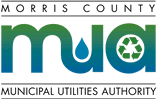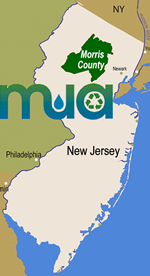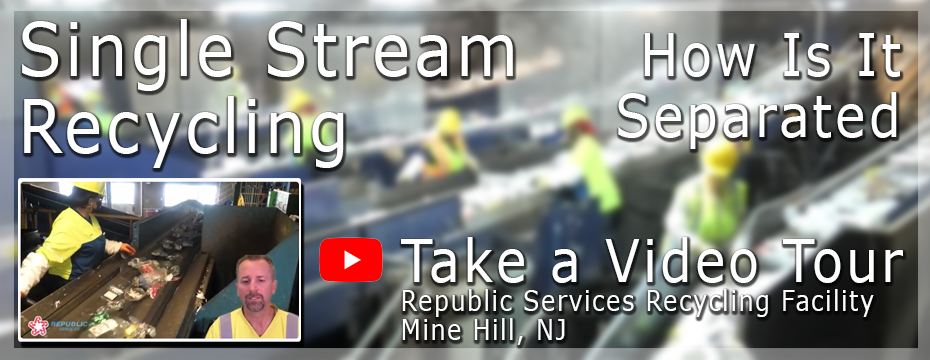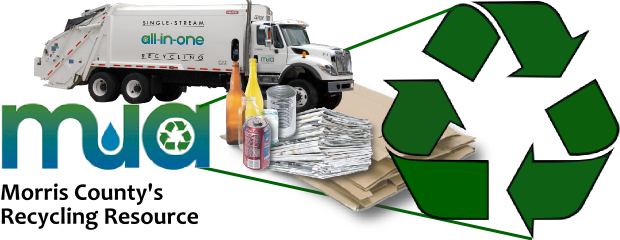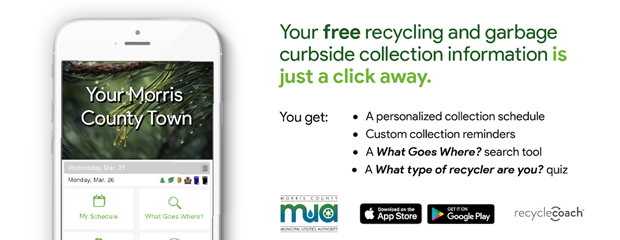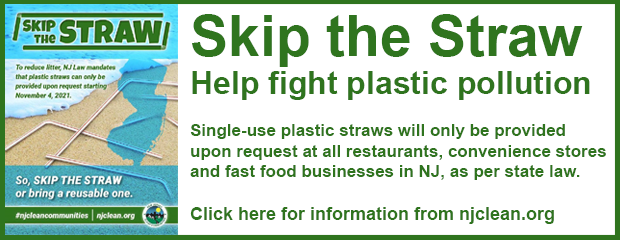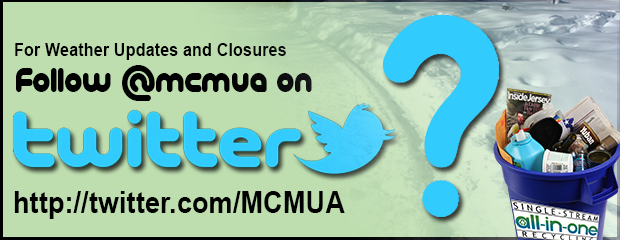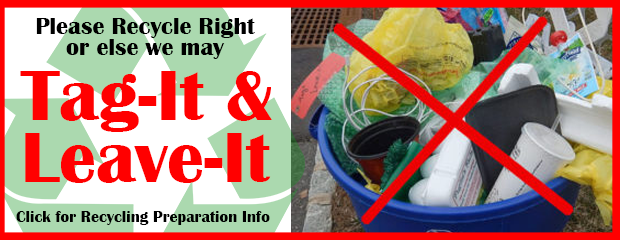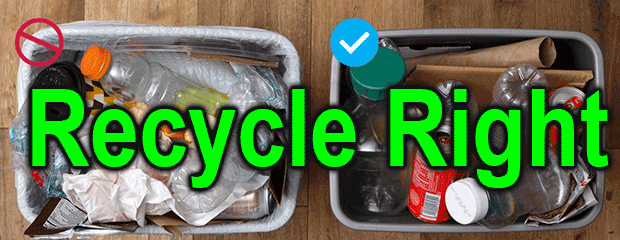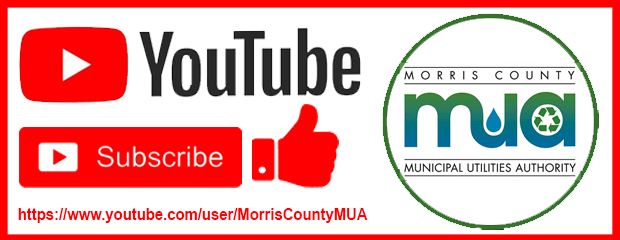Transfer Station Info (Tip Fee $113.00/ton)
- Mt. Olive Mon-Fri 7:30am-3pm; Sat 7:30am-11am
- Parsippany Mon-Fri 7am-3pm; Sat 7:30am-11am
- Closed Sundays and Major Holidays
- No Rental Trucks
- Payment by Account, Check, Credit Card. No Cash
Contents
Links of Interest
Recycling Mandates & More...
Multi-Family Recycling Resources
Recycling in multi-family housing is vital to a community's overall recycling program. Multi-family housing is any residential building or complex with three or more leased or owned dwelling units. This can encompass various residential units such as condominiums, apartments, and townhouses.
Property management is responsible for establishing and maintaining a recycling program for multi-family housing. This involves ensuring the residents and the waste hauler adhere to source-separated recycling requirements. Failure to do so may result in potential violations and penalties being imposed on the property owner or management. The following information is intended to assist property managers, municipal recycling coordinators, builders, and residents in ensuring the successful implementation of recycling programs at multi-family complexes in Morris County.
Multi-Family Recycling Downloadable Resources:Planning for New Multi-Family Developments: Recycling During Construction
Recycling is required by law and is commonly overlooked during the construction phase of a new development. Sites must have the appropriate separate containers for mandated recyclables and garbage. Project managers should educate all construction staff on source-separated recycling.
Understanding Local Recycling Rules
Project managers overseeing new developments should carefully review all municipal recycling ordinances and communicate with the Municipal Recycling Coordinator. For multi-family subdivisions, obtaining approval from the municipal planning board for any plans related to collecting and storing recyclable materials is necessary. Some ordinances mandate consultation with the Municipal Recycling Coordinator to determine suitable recycling containers and dimensions for recycling collection areas, followed by approval from the planning board. Additionally, some ordinances require new developments to provide a copy of the executed contract with their recycling hauler before the town issues a certificate of occupancy.
Project managers should also seek guidance from the MRC to determine if the site can be included in existing municipal recycling services. Some units may be part of a curbside program, while others may require a unique collection from a centralized location, such as one or more dumpsters. A town may include this collection in its existing contract; otherwise, the property management may need to arrange for collection services. In some cases, a municipality may provide compensation to the property management for these collection services. Nevertheless, if proper source-separated recycling is not carried out, the municipality may terminate or reduce reimbursement payments (N.J.S.A. 40:66-1 et seq.).
Tips for Recycling Collection Areas
- Calculate the amount of recycling that will be generated based on the number of planned housing units. Then, choose the right size of containers based on how often the recycling will be collected. Also, allocate enough space in the site plan for recycling collection areas.
- Recycling and garbage dumpsters should always be placed together but kept separate from each other.
- Both recycling and trash containers should have clear labels.
- Ensure the recycling containers are easily accessible and safe for residents. Depending on the size of the complex, multiple collection areas may be needed.
- To encourage recycling, keep these areas well-lit, clean, and at an adequate height for larger containers, which may require stairs or ramps to be utilized.
- Use lids and enclosures to protect the containers from pests, rain, and illegal dumping.
- When deciding where to put the enclosures, ensure the collection trucks can access the containers and leave the complex without navigating obstacles. Consult the hauler for the exact vehicle specifications for clearance. Check with the municipality for specific planning requirements for vehicle access.
Estimated recycling volume generated weekly based on complexes in Morris County.
Best Practices for Labels and Signage
- Place labels at eye level on all containers' front, back, and sides.
- Use color, photos, or realistic illustrations.
- Provide signage and labels in languages appropriate for residents' needs.
- Include information on both acceptable and unacceptable materials.
- Be specific and include instructions on proper preparation of materials. Most collection programs require materials to be:
- Empty, clean, and dry.
- Loose and not contained in a bag.
- Materials such as cardboard or newspapers shall not be tied or bound together.
- Cardboard boxes shall be flattened to preserve space in their collection containers for collection by the hauler.
Educating Residents
Recycling requirements should be clearly outlined in lease agreements for new tenants, and all residents should receive a resident handbook or publication containing this information. The details should cover source separation requirements, the materials that must be recycled, the locations of recycling bins and collection areas, and any other pertinent information about recycling schedules and protocols on the property. Property managers are responsible for notifying all residents about recycling requirements at least every six months. Effective notification can be achieved through the use of multiple methods, including:
- Personal letters
- Door-hangers
- Inclusion in property emails and newsletters
- Reminders in rent notices or maintenance bills
- Publication on the complex's website and social media.
Offer all educational materials in languages appropriate for residents' needs. If applicable, include information about the municipal recycling depot. Contact the property recycling hauler or the municipal recycling coordinator, as they may already have educational materials available.
For printable examples, see Recycling Flyers & Posters for Multi-Family Residents.
Multi-Family reBags
Many recycling programs require materials to be loose rather than in plastic bags. Property managers of complexes with centralized collection areas can acquire reusable recycling bags for tenants. These washable bags enable residents to store recyclables in their homes and transport them to collection areas without using plastic bags. They can also be customized with instructions and educational information about the recycling program.
The MCMUA offers apartment bags to a limited number of multi-family complexes within its service areas. For more information, please contact support@mcmua.com.
Enforcement
Municipal recycling ordinances specify the officials responsible for enforcing recycling rules, such as the MRC or other township officials. If these officials request it, the Morris County Division of Public Health (MCDPH) acts as a backup enforcer for multi-family complexes with 35 units or more and for violations of source separation by non-residential generators such as construction projects or haulers. The MCMUA may conduct inspections for compliance assistance and educational purposes only.
Enforcement is subject to inspectors representing municipalities or the MCDPH, who may issue notices of violation based on municipal ordinances or New Jersey Administrative Code respectively. While each ordinance varies, penalties at the municipal level generally fall within the range of $25 to $1,000 each day for which a violation occurs.
The following enforcement may be issued by the MCDPH:
- N.J.A.C. 7:26A-10.2 Failure of generator to separate, store, and set out waste in accordance with the municipal recycling ordinance. Base penalty: $3,000 with 30-day grace period.
- N.J.A.C. 7:26A-10.3 Failure of commercial and institutional generators to provide recycling tonnage reports. Base penalty: $3,000 with 30-day grace period.
- N.J.A.C. 7:26A-8.3 Transporter mixing source-separated recyclables with other wastes. Baste penalty: $4,500 with no grace period.
- N.J.A.C. 7:26H-4.4(a)6 Transporter collecting commingled loads of solid waste and designated recyclable materials. Baste penalty: $2,500 with no grace period.
- N.J.A.C. 7:26-2.8(f) Operation of a solid waste facility without obtaining a solid waste facility permit. This may be issued when the generator or complex stores an excessive amount of materials on the ground. Base penalty: $5,500 with no grace period.
